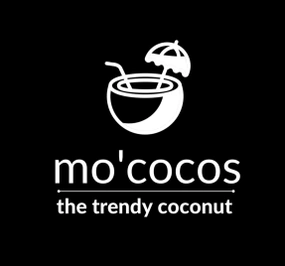Rich in flavor, versatility, and nutritional value, coconuts have been an integral part of cultures around the world for centuries. From the tropical beaches of Southeast Asia to the Pacific Islands and beyond, coconuts have managed to captivate our taste buds and intrigue us with their remarkable properties. In this blog, we will dive into the multifaceted world of coconuts, exploring their health benefits, culinary uses, and environmental significance.
1. Nutritional Powerhouse:
Coconuts are packed with essential nutrients and health-promoting compounds. The meat provides dietary fiber, while the water is a natural hydrator full of electrolytes. Coconuts are a rich source of medium-chain fatty acids, which are easier to digest and can help boost metabolism. They also contain vitamins C, E, and B-complex vitamins, as well as essential minerals like potassium, magnesium, and iron. Incorporating coconuts into your diet can have numerous beneficial effects on your overall health and well-being.
2. Culinary Versatility:
From savory to sweet dishes, coconuts offer a myriad of options in the culinary world. Coconut milk and cream are widely used in curries, soups, and smoothies, bringing a silky richness to the dishes. Coconut oil, with its high smoke point, is perfect for frying, baking, and sautéing. The grated coconut meat, known as desiccated coconut, is a common ingredient in baked goods, desserts, and breakfast bowls. Additionally, coconut flour and coconut sugar are gaining popularity as gluten-free alternatives in the food industry.
3. Coconut by-products:
Coconuts offer more than just their meat and water. The husk, known as coir, is used to make ropes, mats, doormats, and even furniture. The hard shell is often turned into beautiful handicrafts, utensils, and natural charcoal. Coconut oil is a staple ingredient in many beauty products due to its moisturizing and nourishing properties. Furthermore, coconut fibers are utilized for erosion control and horticulture purposes. Thus, coconuts provide a sustainable source of income for many communities.
4. Environmental Impact:
Apart from their culinary and commercial significance, coconuts play a vital role in several ecosystems. Coconut trees help prevent soil erosion on coastlines, protect wildlife habitats, and act as windbreakers during storms. They require fewer pesticides and herbicides compared to other crops, making them a sustainable choice for farmers. Moreover, the coconut palm tree produces oxygen and absorbs carbon dioxide, contributing to mitigating climate change.
5. Coconuts in Traditional Practices:
Coconuts have been deeply intertwined with traditional practices, rituals, and celebrations in many cultures. In some regions, they are considered a symbol of fertility, purity, and prosperity. Coconuts are often used in religious ceremonies, as offerings, or even as musical instruments. The distinct sound created by tapping the shell is an integral part of cultural performances and festivities in various communities.
Conclusion:
Coconuts are not just a delicious treat but a versatile resource with significant cultural, culinary, and ecological importance. Exploring the world of coconuts reveals a treasure trove of health benefits, culinary delights, and sustainable practices. From nourishing our bodies to supporting livelihoods and protecting the environment, coconuts continue to amaze and inspire. So, the next time you enjoy a sip of coconut water or savor the taste of a coconut-infused dish, remember the story behind that humble nut and the incredible journey it has taken to reach your plate.


